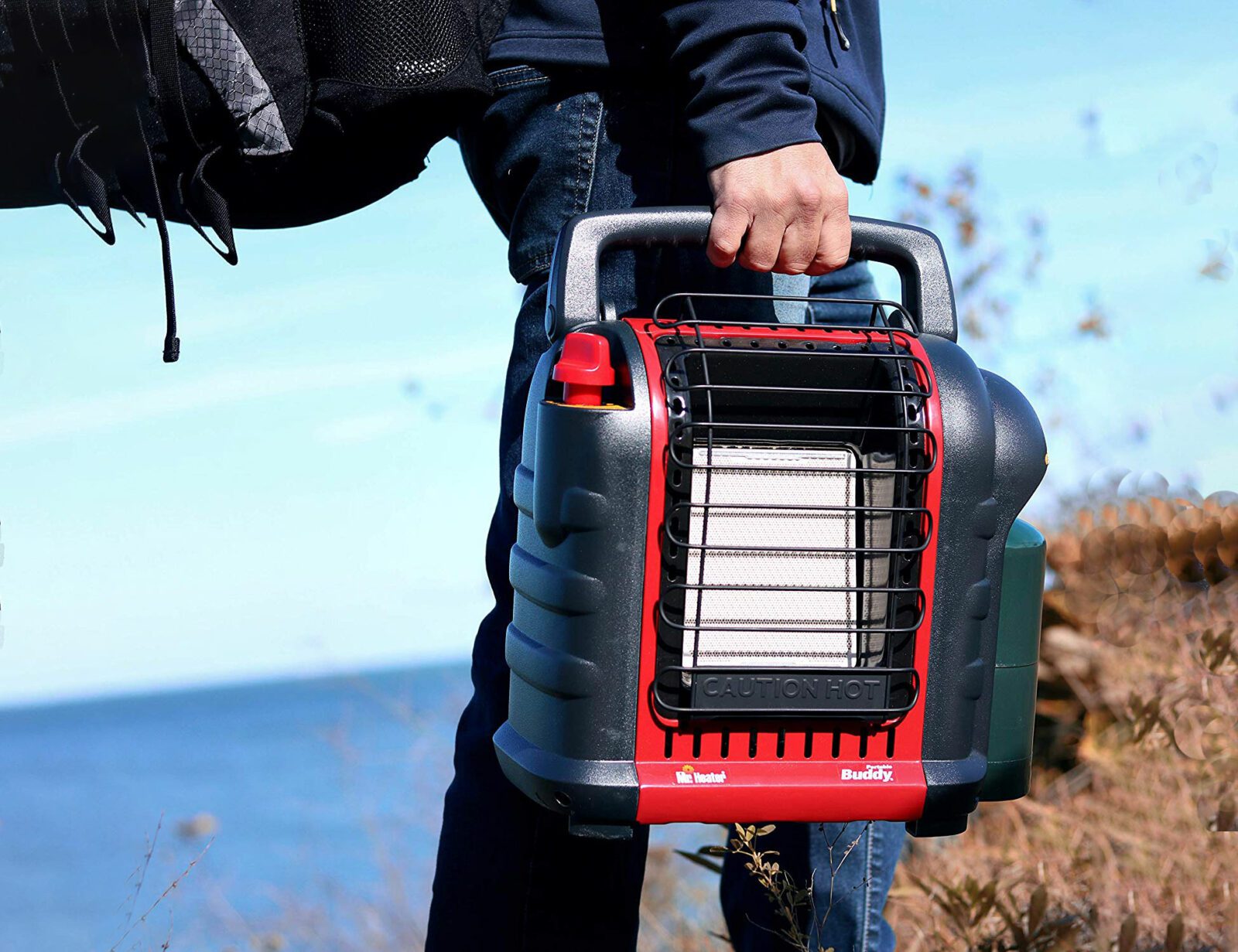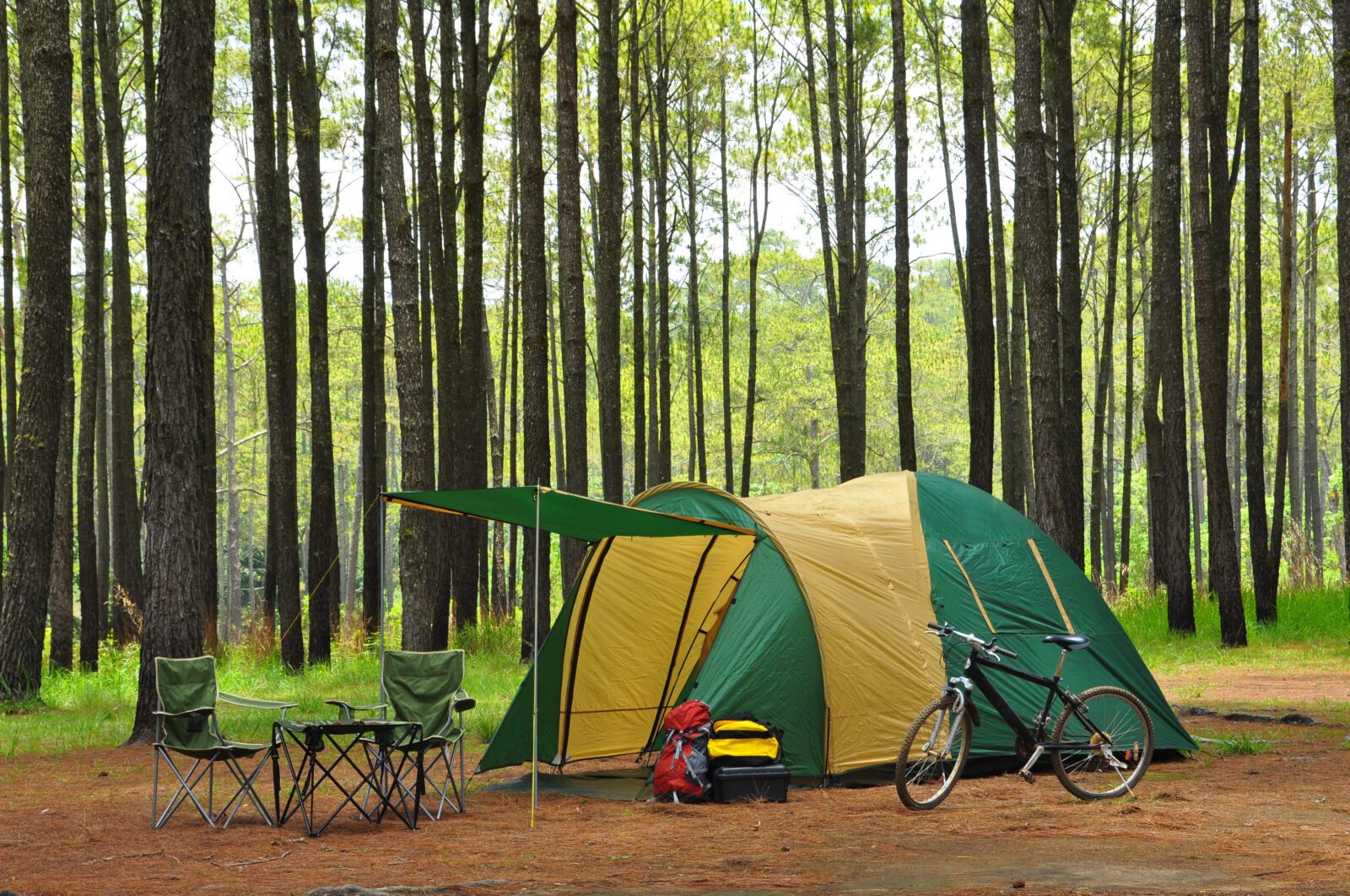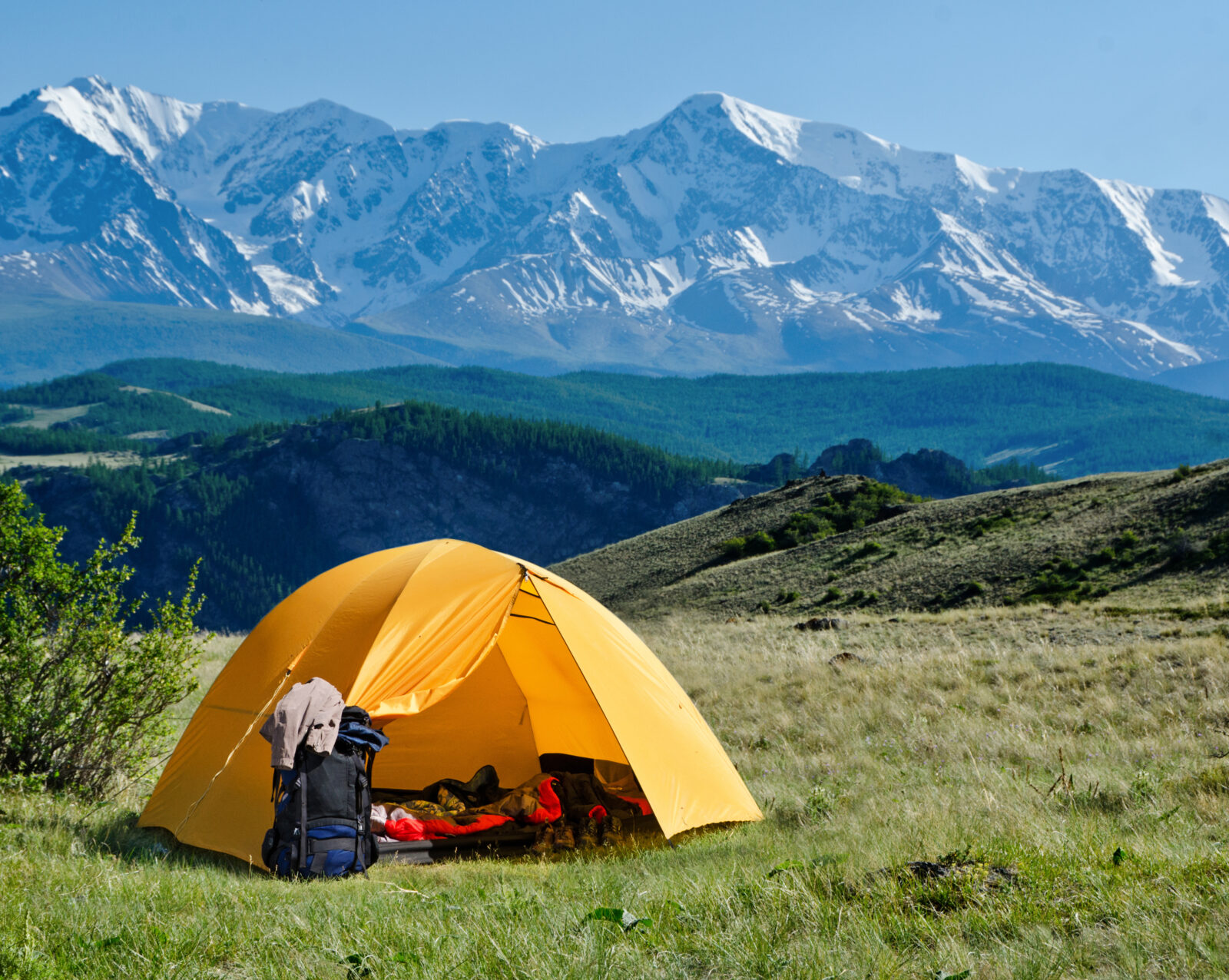On a cold night of camping, when you’re curled up in your winter sleeping bag, sometimes you just need a bit of extra warmth.
Enter the tent heater.
With the right tent heater, you can get a great night’s sleep while car camping during the winter months, even in a cold environment like the Adirondacks or Rocky Mountain National Park.
However, while tent heaters are awesome pieces of gear, they can be dangerous if not used properly.
To help ensure that you can stay warm and cozy while using your tent heater during your next cold weather camping trip, we’ve put together this list of our top tips for using tent heaters safely right here for you to check out.
Page Contents
Risks and dangers of using tent heaters
Before we dive into our trips for using tent heaters, it’s important that you understand the risks and dangers associated with these pieces of gear.
Doing so will set you up for success while camping and will give you the tools you need to make good decisions at the campground.
Here are some of the most important risks and dangers to keep in mind while using a tent heater.
Fire hazards
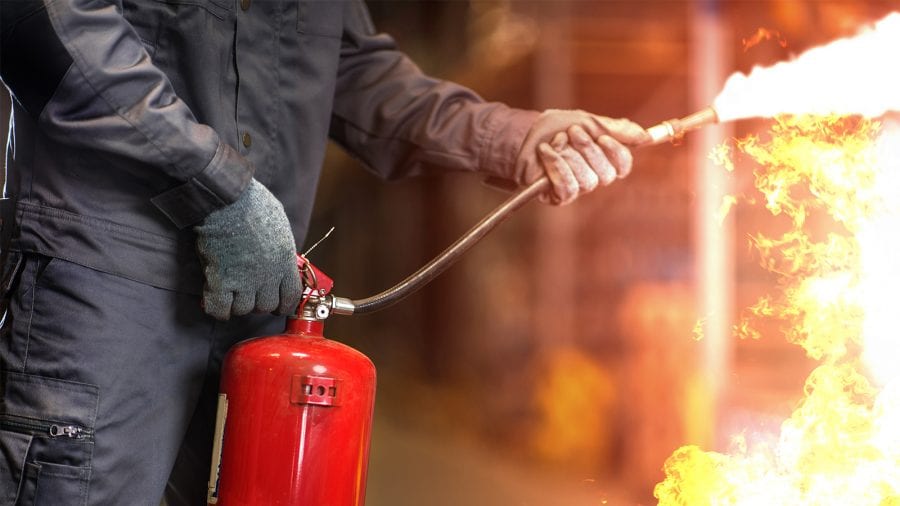
Any propane tent heater that produces a flame can be a fire hazard if it comes into contact with objects like your summer sleeping bag or two-person tent.
Although many pieces of outdoor gear are made with flame-retardant fabrics, many others are highly flammable, which can be dangerous if your propane tent heater gets knocked over onto its side at night.
Moreover, even electrical tent heaters can be a fire risk, especially if they overheat. Although most quality electric heaters are made with high-end components, improper use of these devices can lead to overheating. When this happens, the heater could start an electrical fire in your tent.
Carbon monoxide poisoning
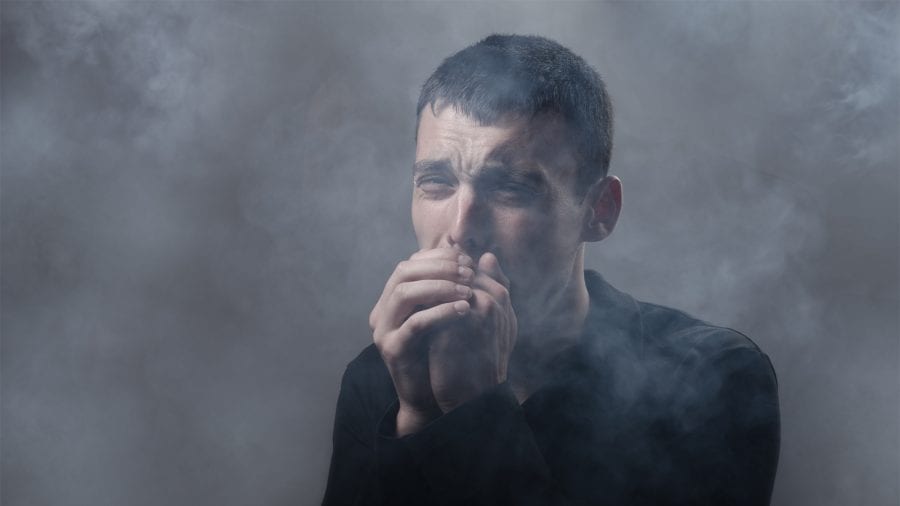
Perhaps the most likely danger of a propane tent heater, however, is carbon monoxide poisoning. Carbon monoxide is a type of odorless and colorless gas that can cause suffocation and serious illness or death in high quantities.
Propane heaters and other types of flame-powered heating devices, like camping stoves, produce carbon monoxide naturally as they burn fossil fuels.
In an open space, like your campsite, this normally isn’t a problem as the carbon monoxide is easily diluted by the atmosphere. However, in a poorly ventilated tent, an improperly used tent heater can lead to dangerous levels of carbon monoxide.
Oxygen depletion
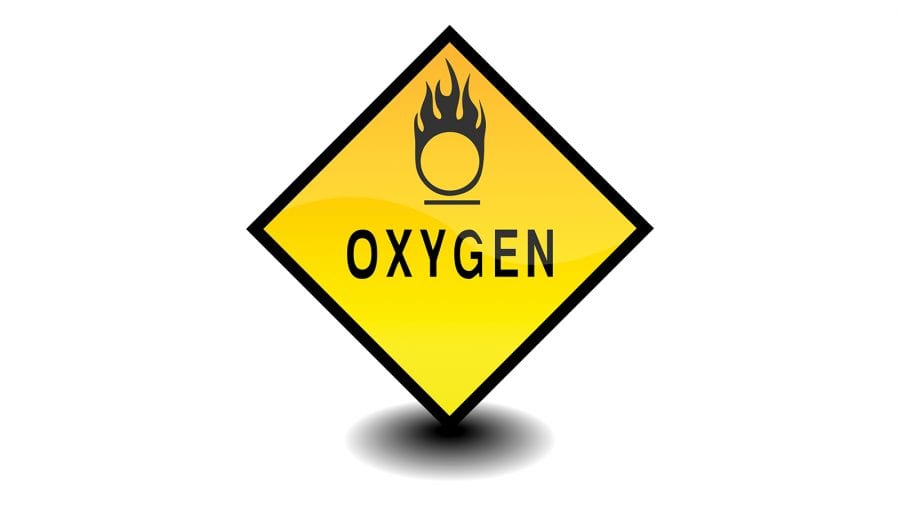
An often overlooked, yet still relevant danger of propane heaters is oxygen depletion. Since combustion requires oxygen, these flame-powered heaters can suck up quite a bit of oxygen inside an enclosed tent, leaving little behind for us to breathe.
As you can imagine, this situation can be quite dangerous if left unchecked.
Burns and scalding injuries
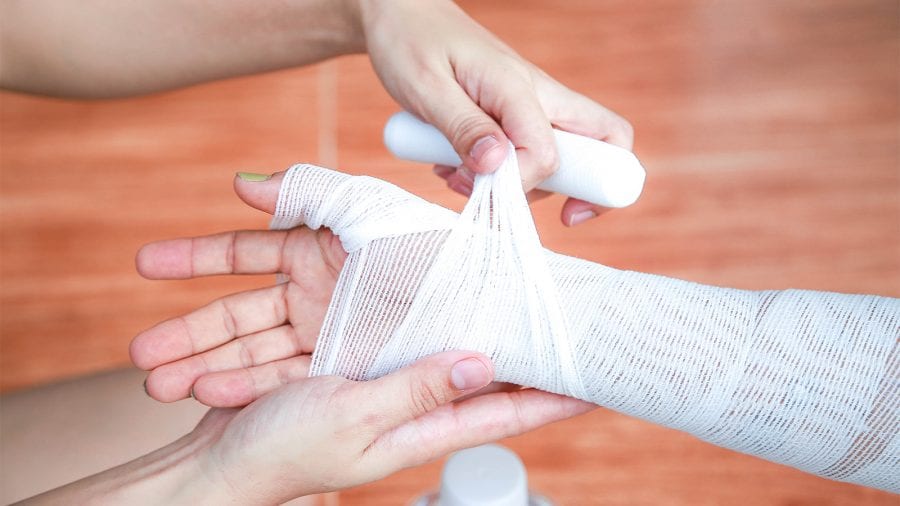
Finally, we have burns and scalding injuries. These injuries can happen regardless of the type of heater you’re using if you bump into the heating element of your device.
Just like putting your hand on a hot stove, any skin that comes into contact with a tent heater, whether electric or propane-powered, is at risk for a burn.
While this issue is more of a problem around young children who tend to be less aware of their surroundings, anyone that camps with a tent heater should know how to position and use one properly to prevent the risk of serious burns at night.
Tips for using a tent heater
Now that you know the risks and dangers of using a tent heater, let’s talk a bit about what you can do to keep yourself safe while camping.
Here are our top safety tips to keep in mind during your next adventure.
Only buy purpose-built tent heaters
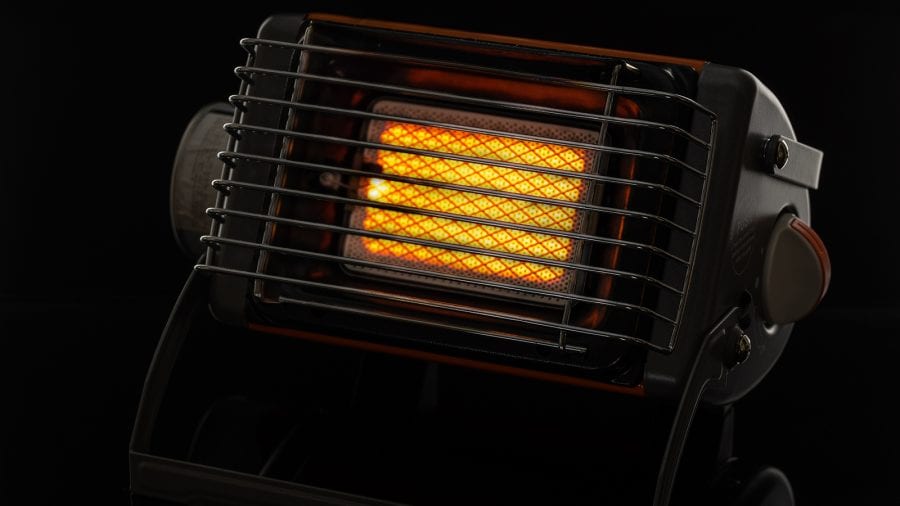
Tent heater safety starts with buying the right one. That means purchasing a model that’s specifically designed for use inside a tent.
While there are plenty of space heaters out there, such as those that you might use in a bedroom or on a patio, only a small subset of heaters are actually meant for use in your tent.
It’s important that you get a heater that’s actually meant for tents because these devices will come with a set of safety-related features that you might not find elsewhere. These safety features include auto-shutoff systems that spring into action if your heater is tipped over or if its oxygen depletion sensor triggers an alarm.
Of course, buying the right tent heater is only part of the story. Once you’re outside, you’ll need to take the proper precautions to ensure that you stay safe while camping in the great outdoors.
Always keep your tent well-ventilated
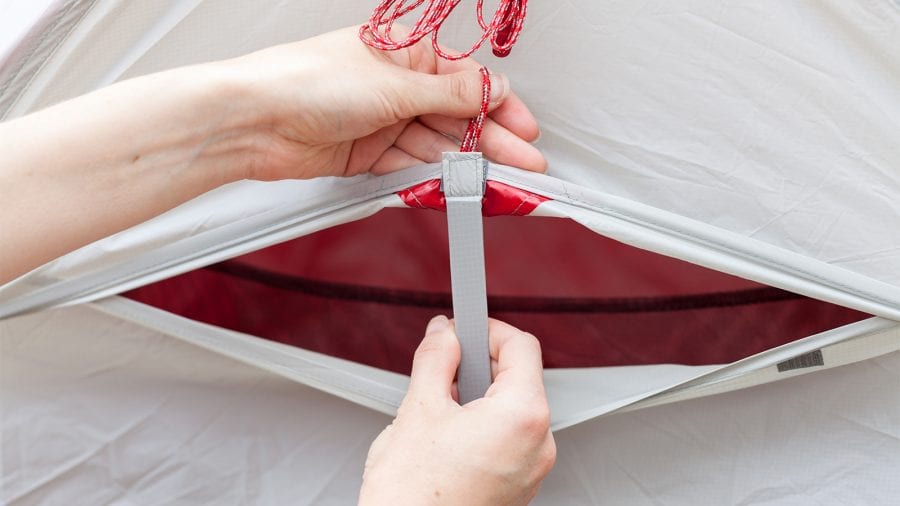
If you’re using a propane tent heater, one of the most important things you need to do is to keep your tent well-ventilated.
As we’ve already mentioned, carbon monoxide is a serious threat whenever you use gas-burning appliances inside an enclosed space. Indeed, this is why you should avoid using a camp stove inside your tent at all times, even when you’re experiencing frigid temperatures in a cold locale, like Glacier National Park.
That being said, if you have a quality propane tent heater, there’s no reason that you can’t use it in your tent. But, you will have to ensure that your tent remains well-ventilated at all times to prevent the buildup of carbon monoxide to dangerous levels. That means opening up the vents in your tent, even on cold nights.
Be strategic with your heater placement
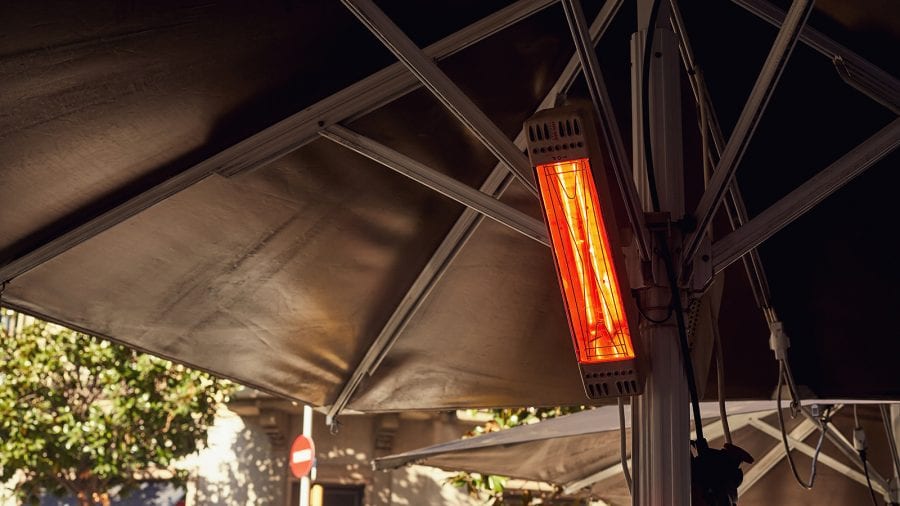
Where you place your tent heater within your tent is of the utmost importance.
That’s because a poorly placed tent heater can easily tip over, which could potentially cause a fire. Additionally, if that tent heater falls over onto someone while it’s still hot, it could cause burns and other injuries.
Therefore, placing your tent heater in a strategic location is critical if you want to ensure that your camping experience goes off without a hitch. When deciding on a place to put your tent heater, consider the following :
- Proximity to flammable objects. Keep all tent heaters far from the sides of your tent, where it could come into contact with flammable fabrics. In general, it’s best to keep the area around the heater as clear as possible.
- Distance from sleeping areas. Position the heater at least a good distance from your sleeping location so you don’t hit it at night – at least a few feet. This is particularly important around children, though your heater should be placed far from anyone that tosses and turns at night to prevent accidental tip-overs.
- Find flat ground. Ensure that your heater is placed on firm ground that’s as flat as possible to prevent tip-overs. You might also consider bringing a piece of plywood to serve as a steady platform for your heater if you tend to camp in areas with hilly terrain.
- Nearby ventilation sources. If you’re using a propane-powered model, be sure to position your heater so that it’s within a few feet of a well-ventilated area. This can help prevent dangerous build-ups of carbon monoxide at night.
Bring a carbon monoxide and smoke detector
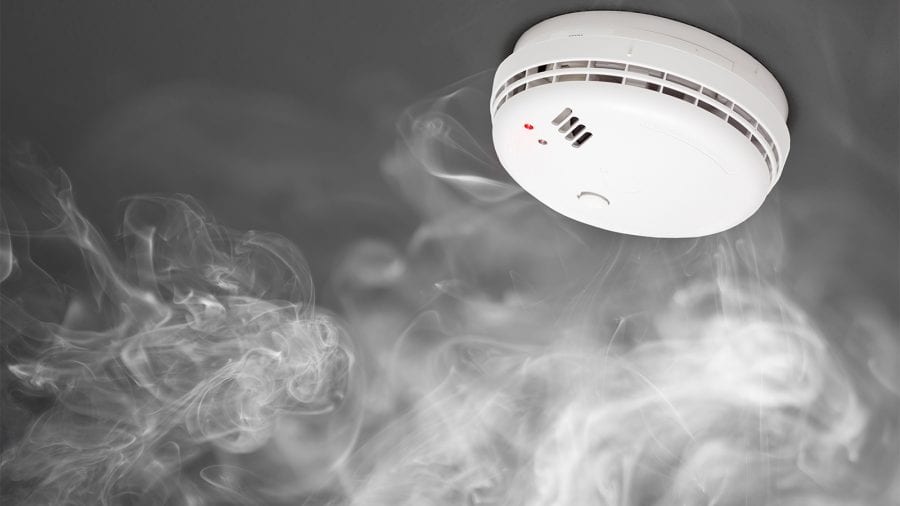
Although most quality propane tent heaters come with auto-shut-off functions, you don’t want to rely solely on these features to keep you safe at night. Instead, pack a battery-powered carbon monoxide alarm and smoke detector for use in your tent at night.
Place the detectors in the tent with you, but be sure to keep them at least a few feet away from your heater to prevent accidental alarms.
Moreover, remember to change the batteries regularly as the cold conditions you’ll face while camping is known to drain battery life much faster than what you’d expect at home.
Only use your tent heater when you’re awake
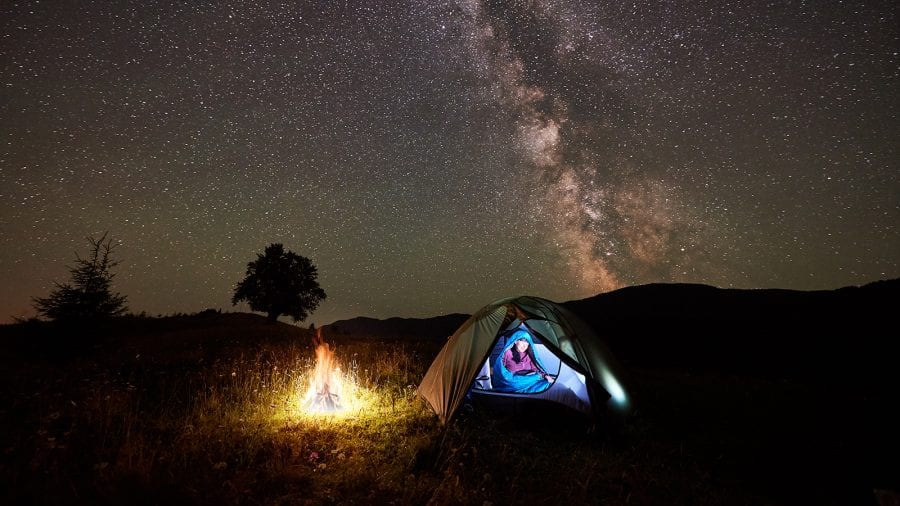
Finally, consider only using your tent heater while you’re awake. While many of us are accustomed to sleeping in a constantly heated environment at home, keeping your tent heater running throughout the night isn’t always the best move.
That’s because tent heaters just aren’t designed to operate for eight or more hours in a row. Rather, they’re meant to provide you with an extra burst of warmth before you go to bed or when you wake up.
In fact, if you turn your heater on for 30 minutes to an hour before you head to bed, then you can often heat up your tent just enough to keep you warm until your sleeping bag gets nice and cozy for the night.
The fact of the matter is that you can never heat a tent, which is made from thin fabrics and mesh, as well as you can heat a home with thick walls and ample insulation. Therefore, your tent heater is more a short-term heat source rather than a fully-fledged HVAC system for the campground.
Gaby Pilson
Gaby is a professional mountain guide with a master’s degree in outdoor education. She works primarily in the polar regions as an expedition guide, though she can be found hiking, climbing, skiing, sailing, or paddling in some of the world’s most amazing places when not at work.
